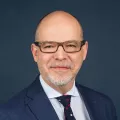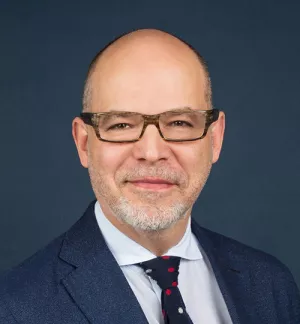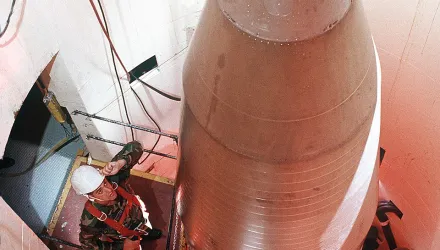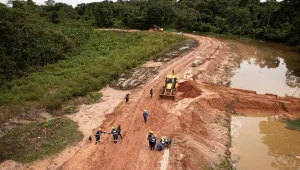Fredrik Logevall is the author of "JFK: Coming of Age in the American Century 1917-56"
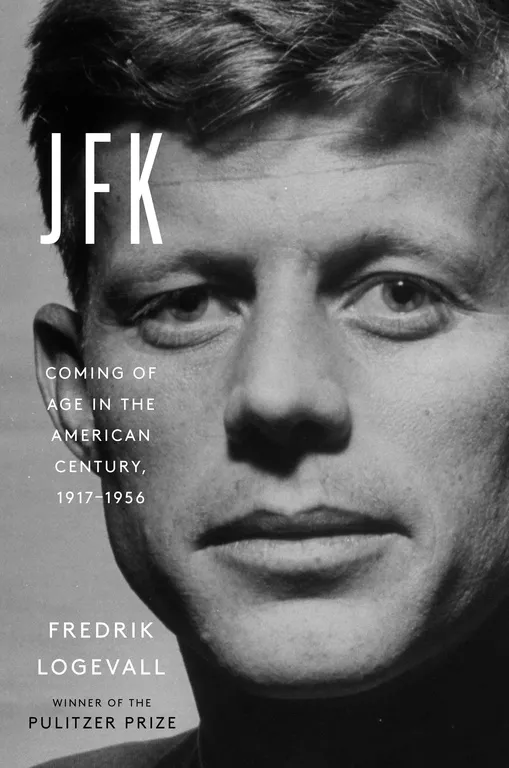
Fredrik Logevall is the Laurence D. Belfer Professor of International Affairs at HKS and Professor of History in the Faculty of Arts & Sciences, Harvard University. A specialist on U.S. foreign relations history and 20th century international history, he is the author or editor of 10 books, most recently JFK: Coming of Age in the American Century, 1917-1956 (Random House, 2020). His book Embers of War: The Fall of an Empire and the Making of America’s Vietnam (Random House, 2012), won the Pulitzer Prize for History and the Francis Parkman Prize. A native of Stockholm, Sweden, he is a past president of the Society for Historians of American Foreign Relations.
We asked Logevall to tell us how he became interested in writing this JFK biography, what surprised him in his research, and whether he thinks JFK would have won the 2020 election.
Q. What led to your decision to write JFK: Coming of Age in the American Century, 1917-56? Was your research guided by specific questions?
I want to write about things that interest me, and Kennedy does. I’ve written about him in other contexts, particularly as pertaining to his foreign policy decision-making as president (Vietnam, the Cold War), and I determined there was an opportunity here for a full-fledged “life and times” biography, in two volumes. The archival source materials are incredibly rich, after all, and moreover we have hardly any in-depth biographies of the man. What’s more, I had the idea that one could offer in effect twin narratives, could write this as history and biography, could use the story of Kennedy’s rise to also tell the story of America’s rise, to great-power and then superpower status. That’s the conceit of the project: that key developments in the U.S. and world story in the middle decades of the 20th century are better understood through the lens of JFK’s life.
Q. Did you find that any one experience had more impact than others in shaping Kennedy into the leader he became?
Certainly, Kennedy’s experience in World War II in the South Pacific was highly important, and I deal with it at length in the book. He came back from the war convinced that the United States must play a leadership role in international affairs going forward, working in concert with other nations, even as he also returned with a pronounced skepticism about the utility of military force in world affairs. His wartime service also strengthened his interest in pursuing a political career. Even before the war he was fascinated by politics, and by the challenges of leadership in a democracy—his Harvard senior thesis centered on that issue—but only in 1945, with the return of peace (and after flirting with a career in journalism, or academia, or the law), did he determine he would seek elected office.
Q. Can you describe an “aha” moment of discovery or insight during your research that especially surprised you?
One “aha” moment—among many!—came when I was in the wonderful research room at the JFK Library, reading the speeches Kennedy made in his first Congressional race, in the 11th District here in Massachusetts (which encompassed Cambridge), in 1946. In them Kennedy sounded notes that struck me as powerfully resonant today. He urged his campaign audiences to avoid easy cynicism about politics and politicians—the survival of democracy, he declared, ultimately depended on civic duty, on Americans being engaged on the issues, being committed to reasoned discourse and supportive of good-faith bargaining between the parties. He employed the language of inclusion, stressing Americans’ shared dreams and shared challenges as a people. These sentiments would be at the core of his extraordinary inaugural address of 1961; I found it remarkable to see them articulated already here, before his political career had really taken off, when he was all of 29, in speeches he wrote largely by himself.
Q. This first volume of your JFK biography does not cover his election as president, but with the 2020 presidential election still top of mind for many, do you think JFK would have been elected president in 2020?
Interesting question! With his charismatic appeal, his inspirational speechmaking, and his winning sense of humor, he certainly had important and timeless attributes in his favor. In addition, JFK had an extraordinary capacity for hard work, which is critical in a long and inevitably bruising presidential campaign, and which was all the more notable given his well-documented health ailments. Politically, he was a pragmatic centrist, and it’s interesting to speculate how that would have played in 2020, though one could certainly argue that Joe Biden (a fellow Catholic) is cut from the same cloth—and moreover that U.S. presidential elections tend to be won in the middle, certainly in modern history of the country. Inevitably, there’s also the matter of Kennedy’s womanizing, which many of the reporters who covered him in 1960 knew about but did not publicize; he could never get away with that today, which of course might mean that he would alter his behavior accordingly if he were running today.
Q. Are you hard at work now on Volume 2? When can we expect it?
Yes, I’m fairly deep into the research on the second and final volume, which will cover the final seven years of his abbreviated life—1957 to 1963. I’m somewhat stymied now, of course, as the myriad archives I need to visit, both in the United States and abroad, are for the most part closed on account of the pandemic. But there is good news here too: some archives, bless them, have digitized at least part of their collections, which means I can do some work from right here in my home study. I’m loving the work, and am hopeful I can have a finished product in…—well, let me get back to you on that.
Click here to return to Belfer Center Newsletter
"Q&A with Fredrik Logevall, author of JFK: Coming of Age in the American Century." Belfer Center Newsletter, Belfer Center for Science and International Affairs, Harvard Kennedy School. (Fall 2020)

